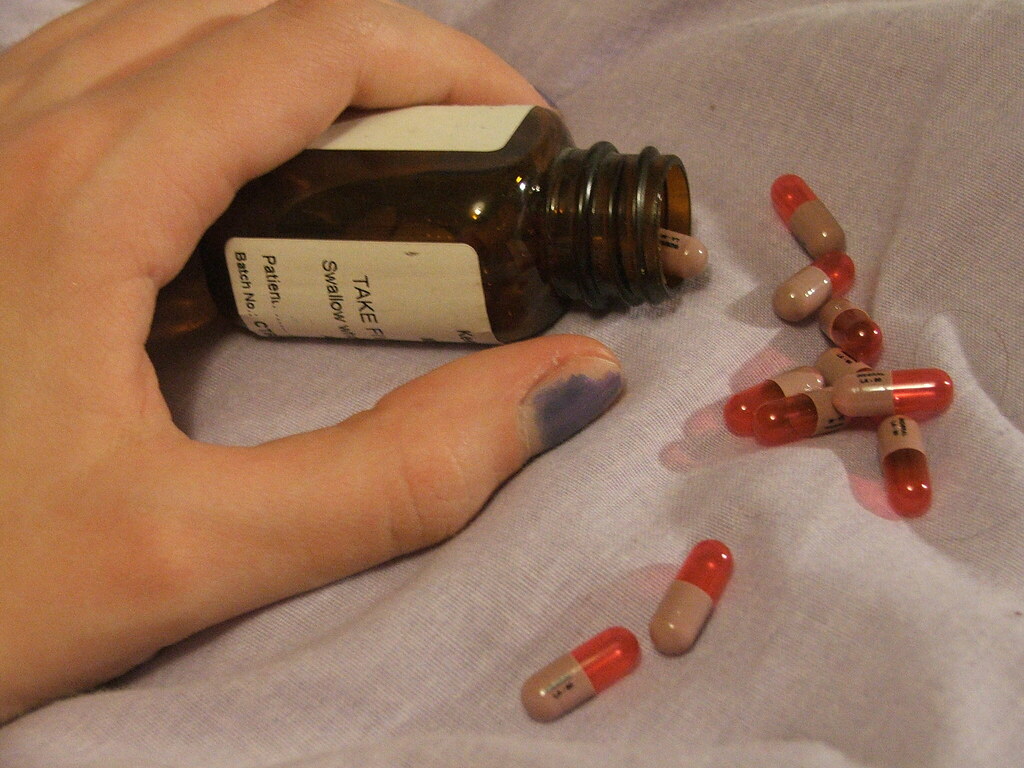
In our bustling, fast-paced world, it’s incredibly common for individuals to experience challenges with sleep or find themselves battling fatigue throughout the day. While there can be a myriad of factors contributing to these issues, one often-overlooked culprit that silently influences our daily energy levels is the very medications we rely on for our health. Many widely prescribed drugs, from everyday allergy relief to specialized treatments for chronic conditions, can indeed lead to drowsiness as a significant side effect.
Understanding which medications might contribute to this unwelcome sleepiness is absolutely essential for your overall well-being and maintaining a good quality of life. This isn’t just about feeling a little tired; it can profoundly impact your daily productivity, your ability to perform tasks requiring alertness, and even your safety. Our goal here is to shine a light on these common medications, offering clear, evidence-based insights into why they make us sleepy and what practical steps you can take to manage this often-disruptive side effect.
Before we dive into specific medications, let’s take a moment to understand the fundamental mechanics behind why some drugs can make you feel drowsy. Medications that induce sleepiness primarily work by affecting the central nervous system (CNS). The CNS, which includes your brain and spinal cord, is the sophisticated control center that regulates everything from your breathing to your sleep-wake cycles. When certain medications interact with the CNS, they can slow down brain activity, reduce your natural state of arousal, and produce calming, sedative effects, thereby disrupting the delicate balance needed for you to feel awake and alert. As Barb Hergert, PharmD, a clinical pharmacist, wisely noted, “Many medicines can have this side effect,” and she emphasizes that “everyone reacts to medicines differently, so it’s hard to generalize.” This personal variability makes it even more important to be informed and communicative with your healthcare provider.

1. **Antihistamines**Antihistamines are perhaps one of the most common culprits when it comes to unexpected drowsiness, and many of us have experienced their sedative effects, even from over-the-counter options. These medications are primarily used to combat the annoying symptoms of allergies, such as congestion, sneezing, and itchy eyes. They work by blocking histamine, a natural chemical your body releases that’s responsible for triggering these allergic reactions. While incredibly effective at stopping an allergic cascade, histamine also plays a crucial role in your brain, where it helps regulate your sleep and wakefulness.
So, when you take an antihistamine to find relief from your allergies, it simultaneously blocks these wakefulness-promoting histamine receptors in your brain, leading to that all-too-familiar drowsy feeling. It’s a double-edged sword: relief from allergies, but often at the cost of your alertness. This effect is particularly pronounced with older, first-generation antihistamines, which are more likely to cross the blood–brain barrier. This direct impact on the brain and central nervous system makes drowsiness far more probable and noticeable.
Prominent examples of these first-generation antihistamines include diphenhydramine (Benadryl), chlorpheniramine (Chlor-Trimeton), and hydroxyzine (Vistaril). If you find yourself needing to take one of these, a practical tip is to consider taking it closer to bedtime to minimize its impact on your daytime activities. However, if daily drowsiness is a significant concern, you might want to talk to your doctor about switching to a newer, second-generation antihistamine. These medications, such as fexofenadine (Allegra), loratadine (Claritin), and cetirizine (Zyrtec), are specifically formulated to be less likely to cross the blood-brain barrier, thereby reducing the chances of causing drowsiness while still providing effective allergy relief.
Read more about: Pharmacy Secrets Revealed: 9 Cold & Flu Remedies Pharmacists Wish You’d Stop Grabbing Off the Shelf

2. **Anti-Anxiety Medications**When it comes to managing anxiety and certain sleep disorders, anti-anxiety medications often enter the picture, with benzodiazepines being a particularly well-known class. These medications, which include familiar names like diazepam (Valium), alprazolam (Xanax), and lorazepam (Ativan), are highly effective at providing a calming effect and reducing anxious thoughts. They achieve this by enhancing the activity of a neurotransmitter called gamma-aminobutyric acid (GABA) in the brain, which in turn slows down the overall activity of the central nervous system.
While this slowing effect is precisely what helps alleviate anxiety, it also means that drowsiness is a very common and, in many cases, an expected side effect. The drugs that slow your heart rate, such as benzodiazepines, can have a relaxing or sedative effect on your body, which can lead to drowsiness. This sedative property can range from a mild tiredness to significant lethargy, making it challenging to concentrate or stay fully alert during the day. For some individuals, this effect can be quite pronounced, interfering with their ability to perform daily tasks that require focus and quick reactions.
Given their impact on alertness, it’s absolutely crucial to exercise caution when taking anti-anxiety medications. Avoid activities that demand full mental sharpness, such as driving or operating heavy machinery, especially when you are just starting the medication or whenever your dosage is adjusted. Furthermore, combining benzodiazepines with other substances that also depress the central nervous system, particularly alcohol, can significantly amplify drowsiness and increase the risks of accidents and other adverse effects. Always have an open conversation with your healthcare provider about how these medications might affect you and the safest ways to manage their side effects.
Read more about: Beyond the Leash: 12 Essential Lifehacker Tips for a Stress-Free Pet Travel Experience

3. **Antidepressants**Antidepressants are vital medications for millions of people managing conditions like depression and anxiety, working diligently to elevate mood and improve overall mental well-being. However, the complex ways in which these medicines interact with brain chemistry can sometimes lead to unexpected side effects, and drowsiness is one that many individuals experience. “Generally speaking,” Hergert explained, “antidepressants are known to cause sleep problems, including drowsiness.” These medications typically function by influencing the levels of specific neurotransmitters in the brain, such as serotonin and norepinephrine, which play key roles in regulating mood, sleep, and alertness.
While the primary goal is to boost these neurotransmitters to improve mood, this intricate rebalancing act can, at the same time, make you feel drowsy. The specific likelihood and intensity of drowsiness can vary significantly depending on the type of antidepressant prescribed. For instance, some older tricyclic antidepressants (TCAs), like amitriptyline (Elavil), and certain newer antidepressants, such as mirtazapine (Remeron) and trazodone (Desyrel), are particularly known for their sedative properties. In fact, mirtazapine and trazodone are often intentionally prescribed to be taken at bedtime specifically because of their drowsiness-inducing effects, helping those who struggle with sleep.
On the other hand, other kinds of antidepressants, such as selective serotonin reuptake inhibitors (SSRIs) like fluoxetine (Prozac), are generally not as likely to cause significant drowsiness for most people. Therefore, if you are prescribed an SSRI, you may be advised to take it during the daytime. If you find your antidepressant is causing you to feel overly tired or drowsy, it’s essential to communicate this to your doctor. They can provide guidance on adjusting the timing of your dose or explore alternative medications that might better suit your daily routine and minimize this side effect. Remember, never stop taking your antidepressant suddenly, as this can lead to uncomfortable withdrawal symptoms; always consult your doctor for a safe plan.
Read more about: An Unforgettable Epoch: The Bizarre and Tragic Departures of Thirteen Literary Icons

4. **Antipsychotic Medications**Antipsychotic medications are cornerstones in the treatment of complex mental health conditions such as schizophrenia, bipolar disorder, and certain mood disorders. They are designed to help manage severe symptoms like hallucinations, delusions, and disorganized thought patterns by carefully influencing the levels of neurotransmitters, particularly dopamine, in the brain. While their efficacy in stabilizing these conditions is undeniable, many antipsychotics are also well-known for causing significant drowsiness as a common side effect.
The sedative effect of these medications stems from their interaction with various receptors in the brain, which can lead to a general slowing of brain activity. This impact can result in feelings of lethargy, fatigue, and an overwhelming desire to sleep. Examples of antipsychotic medications frequently associated with drowsiness include quetiapine (Seroquel), olanzapine (Zyprexa), and risperidone (Risperdal). The intensity of this drowsiness can vary from person to person and also depends on the specific medication and its dosage.
For individuals taking antipsychotic medications, managing drowsiness is a critical aspect of their treatment plan. One common strategy to mitigate daytime sleepiness is to take the medication at night, closer to bedtime. This allows the primary sedative effects to occur during natural sleep hours, potentially reducing their impact on daytime alertness. However, any adjustment to medication timing or dosage should always be made in close consultation with your healthcare provider. They can help you find the optimal balance between symptom management and minimizing unwanted side effects, ensuring your treatment is both effective and tolerable.
Read more about: Robin Williams’ Final Act: Unmasking the Invisible Monster of Lewy Body Dementia and a Widow’s Enduring Love

5. **Antiseizure Medications (Anticonvulsants)**Antiseizure medications, also widely known as anticonvulsants, play a vital role in managing neurological conditions like epilepsy, which is characterized by recurrent seizures, and neuropathic pain. These medications work by stabilizing the electrical activity in the brain, effectively preventing the uncontrolled firing of neurons that leads to seizures. They achieve this through various mechanisms, often by modulating neurotransmitters or ion channels to reduce brain excitability. While highly effective in their primary role, many anticonvulsants can also cause drowsiness as a side effect.
This drowsiness typically arises because the mechanisms that calm overactive brain signals can also broadly reduce overall brain activity, leading to a sedative effect. Essentially, by quieting the brain to prevent seizures or dampen pain signals, these medications can also diminish alertness. Common examples of antiseizure medications that may cause drowsiness include gabapentin (Neurontin) and pregabalin (Lyrica). The level of drowsiness can vary, but for some individuals, it might be a noticeable and persistent challenge in their daily lives.
If you are taking an antiseizure medication and experiencing significant drowsiness, it’s important to communicate this to your healthcare provider. They may consider adjusting your dosage, exploring different formulations of the medication, or even switching to an alternative anticonvulsant that has a lower potential for sedation. Finding the right medication and dosage is often a careful balancing act, aiming to control your condition effectively while minimizing adverse effects that can impact your quality of life. Open and honest communication with your doctor is key to navigating these challenges and ensuring you receive the most appropriate care tailored to your specific needs.

6. **Beta-blockers**Beta-blockers are a class of medications frequently prescribed for managing serious health conditions such as high blood pressure, heart rhythm disorders, and even anxiety. Their primary role is to relieve pressure on the heart and blood vessels, ultimately improving cardiovascular function. These medications are vital for millions of people seeking to maintain their heart health and prevent more severe complications.
However, it’s not uncommon for beta-blockers to come with a side effect of fatigue or drowsiness. This effect is largely attributed to how they influence your heart rate and the body’s hormonal balance. As Barb Hergert, PharmD, a clinical pharmacist, explained, “In addition to slowing your heart rate, beta-blockers also relieve pressure on the heart by blocking the action of certain hormones, such as adrenaline. And when you have less adrenaline, you may have less energy.”
This reduction in adrenaline, which is a key hormone for energy and alertness, can leave you feeling noticeably tired. Common examples of beta-blockers include propranolol (Inderal), atenolol (Tenormin), labetalol (Trandate), and acebutelol (Sectral). While most individuals tolerate these medications well, a small percentage may experience persistent drowsiness and fatigue.
If you are taking a beta-blocker and find yourself struggling with significant drowsiness, it is crucial to communicate this to your healthcare provider immediately. Hergert emphasized, “No. Don’t stop on your own.” Abruptly discontinuing beta-blockers can lead to a condition known as the beta-blocker rebound phenomenon, which can manifest with serious symptoms like a fast heart rate, chest pain, headaches, sweating, and high blood pressure. Your doctor can help adjust the dose or explore alternative treatments safely.
Read more about: Understanding Your Heartbeat: Normal Heart Rate Ranges Across All Ages for Optimal Health

7. **Muscle Relaxers**Muscle relaxants are medications prescribed to alleviate muscle spasms, stiffness, and pain, often stemming from injuries or certain neurological conditions. They work by affecting the central nervous system to reduce muscle tone and promote relaxation. These medications can provide much-needed relief from discomfort and improve mobility for individuals experiencing acute or chronic muscle issues.
While highly effective in targeting muscle spasms, their action on the central nervous system often extends beyond just relaxing muscles. This broader impact can lead to a general slowing of brain activity, making drowsiness a very common side effect. Essentially, the same mechanisms that quiet overactive muscles can also induce a feeling of sleepiness or lethargy throughout the day.
Familiar examples of muscle relaxants include cyclobenzaprine (Flexeril), methocarbamol (Robaxin), and baclofen. The degree of drowsiness can vary significantly among individuals, but it’s important to be prepared for this potential effect, especially when you first start taking the medication or if your dosage changes.
Given their sedative properties, a practical approach to managing drowsiness from muscle relaxants is to consider taking them closer to bedtime. As suggested, taking them before bed can help the primary sedative effects align with your natural sleep cycle, minimizing interference with daytime activities. Always discuss this timing adjustment with your doctor to ensure it’s appropriate for your specific prescription and condition.
Read more about: Hollywood’s Brave Faces: 8 Stars Navigating Rare Conditions with Strength and Openness

8. **Opioids (Pain Relievers)**Opioids are powerful pain medications, essential for managing severe acute pain, such as after surgery or injury, and certain types of chronic pain. They function by binding to specific opioid receptors located in the brain and spinal cord, effectively blocking pain signals from reaching the brain and altering the perception of pain. While incredibly effective at providing relief, their potent action also carries a significant risk of side effects, including pronounced drowsiness.
This drowsiness stems directly from their profound impact on the central nervous system. By depressing CNS activity to alleviate pain, opioids also induce a sedative effect that can range from mild tiredness to profound sleepiness. This can profoundly impair alertness and cognitive function, making it difficult to concentrate or engage in daily tasks that require focus.
Common examples of opioid pain relievers include oxycodone (OxyContin), hydrocodone (Vicodin), and morphine. Due to their potent nature and the risks involved, these medications should always be used under the strict supervision of a healthcare professional. They are known for their addictive potential and the serious risk of respiratory depression, where breathing can become dangerously slow or shallow.
When taking opioid pain relievers, it is absolutely vital to adhere strictly to your doctor’s prescribed dosage and instructions. Furthermore, it is strongly advised to avoid consuming alcohol or any other sedatives while on opioids, as combining these substances can significantly amplify drowsiness, increase the risk of accidents, and potentially lead to life-threatening respiratory depression. Open communication with your doctor about any side effects is crucial for your safety and well-being.
9. **Sedative-hypnotics (Sleep Medications)**Sedative-hypnotics, more commonly known as sleep medications or sleep aids, are specifically designed and prescribed to help individuals who struggle with insomnia or other sleep disorders. Their primary goal is to induce drowsiness and facilitate the onset and maintenance of sleep, allowing people to achieve much-needed rest. They work by enhancing the activity of neurotransmitters that calm brain activity, preparing the body for sleep.
While their intended effect is to make you sleepy, the challenge often arises when these sedative properties linger beyond your intended sleep period. This can result in daytime drowsiness or a feeling of grogginess, especially if the medication is taken too late at night or if its effects are prolonged. The balance between effective sleep induction and avoiding next-day impairment is a delicate one.
Familiar examples of these medications include zolpidem (Ambien), eszopiclone (Lunesta), and ramelteon (Rozerem). It is paramount to use sleep medications strictly as prescribed by your doctor. Misusing them, or taking them in higher doses or closer to your waking hours than recommended, can intensify and prolong unwanted drowsiness.
To mitigate the risk of morning grogginess, it is advisable to ensure you have a full night’s sleep opportunity after taking a sedative-hypnotic, typically 7 to 8 hours. Always consult with your healthcare provider about the optimal timing for your specific sleep aid to minimize any lingering effects that could impact your alertness during the day.

10. **Certain Cold and Flu Medications**When you’re battling a cold or the flu, reaching for an over-the-counter (OTC) medication for relief is a natural response. These medications are formulated to address a range of symptoms, from congestion and cough to sneezing and runny nose. However, it’s a common oversight that many popular cold and flu remedies contain ingredients that can induce significant drowsiness.
The primary culprits for this sleepiness are often antihistamines or other sedative compounds included in the formula. These ingredients are effective at drying up nasal passages and suppressing coughs, but their action frequently extends to the central nervous system, leading to a calming or sedative effect. This is why some cold and flu medications are specifically marketed for nighttime use.
Ingredients like diphenhydramine (often found in products like Benadryl, which can also be in cold remedies) or doxylamine are particularly known for their sedative properties. While helpful for promoting rest when you’re unwell, this drowsiness can be problematic if you need to remain alert for work, school, or daily activities like driving.
It is absolutely essential to carefully read the labels of any cold and flu medications before you take them. Look for phrases like “non-drowsy” or “daytime formula” if you need to maintain alertness throughout the day. If you’re unsure, consult with your pharmacist; they can guide you toward suitable alternatives that won’t leave you feeling sleepy.
### **Strategies to Reclaim Your Clarity: Effectively Managing Medication-Related Drowsiness**
Navigating life with medication-induced drowsiness can be challenging, but you don’t have to simply endure it. Empowering yourself with knowledge and proactive strategies is key to managing this side effect effectively and maintaining your daily clarity and well-being. Here’s a comprehensive look at actionable steps you can take, always in close consultation with your healthcare provider.
**1. Optimize Your Medication Timing and Dosage**
One of the most immediate and impactful adjustments you can explore is the timing of your medication. For drugs known to cause drowsiness, taking them closer to bedtime can allow their sedative effects to align with your natural sleep cycle, minimizing impact on your daytime alertness. As Hergert suggests, if you’re taking older, first-generation antihistamines, “consider taking it at bedtime.” This simple change can make a significant difference in how you feel throughout the day.
Beyond timing, your doctor may also consider adjusting your medication dosage. Sometimes, a slightly lower dose can still be effective in treating your condition while reducing the severity of drowsiness. It’s critical to emphasize that any changes to timing or dosage must be made under the guidance of your healthcare provider. “Never adjust your dosage on your own—always consult a healthcare professional,” is a golden rule to follow, ensuring your treatment remains both safe and effective.
**2. Explore Non-Drowsy Alternatives and Different Medications**
If adjusting timing and dosage doesn’t fully resolve the issue, it’s worth discussing alternative medications with your doctor. Many conditions have several treatment options, some of which may have a lower potential for sedation. For instance, with antihistamines, Hergert noted, “Newer, second-generation antihistamines are less likely to cause drowsiness. These include fexofenadine (Allegra), loratadine (Claritin), and cetirizine (Zyrtec).” These can often provide effective relief without the unwanted sleepiness.
Similarly, some antidepressants, like selective serotonin reuptake inhibitors (SSRIs), are generally less likely to cause significant drowsiness compared to older tricyclic antidepressants or specific sedative antidepressants like mirtazapine. Having an open conversation with your healthcare provider about these possibilities ensures you explore every avenue for managing drowsiness while still achieving your treatment goals.
**3. Prioritize and Practice Excellent Sleep Hygiene**
While your medication may contribute to drowsiness, improving your overall sleep quality can significantly help your body cope. Healthy sleep habits create a robust foundation for daytime alertness. Start by establishing a consistent sleep schedule, going to bed and waking up around the same time each day, even on weekends. This regularity helps regulate your body’s natural circadian rhythm.
Creating a relaxing bedtime routine is another powerful tool. This might involve dimming the lights, taking a warm bath, or reading a book. Crucially, avoid electronic gadgets like phones, tablets, and computers too close to bedtime, as the blue light they emit can interfere with melatonin production and disrupt sleep. Ensure your bedroom is dark, quiet, and cool, providing an optimal environment for restorative sleep. Also, try to avoid large meals and caffeine too close to bedtime; remember, caffeine’s half-life can mean half of it is still in your system hours after consumption.
**4. Embrace a Healthy Lifestyle: Diet, Exercise, and Hydration**
Beyond sleep, your daily habits play a vital role in combating medication-induced drowsiness. Eating a healthy, balanced diet provides your body with the sustained energy it needs, helping to prevent energy dips that can worsen feelings of fatigue. Proper hydration is also crucial, as dehydration can exacerbate drowsiness and lethargy.
Regular physical activity is an excellent way to boost your energy levels and improve your mood. Hergert wisely recommended, “A 30-minute walk is a good way to boost your energy. If you can’t get outside, try walking around your house 2 or 3 times a day for 10 or 15 minutes each time. That can really help.” Just remember to time your exercise so it’s not too close to bedtime, which could interfere with falling asleep.
**5. Exercise Caution and Avoid Compounding Factors**
When taking medications known to cause drowsiness, it’s paramount to prioritize safety. “If you’re just starting on a medication that’s known to cause drowsiness, avoid doing activities that require alertness — such as driving — until you know how it affects you,” advised Hergert. This includes operating heavy machinery or any task demanding full mental sharpness.
Additionally, be extremely mindful of substances that can amplify drowsiness. Alcohol is a major culprit; Hergert explicitly states, “And avoid alcohol while taking medication. It could make you even drowsier.” Combining medication with alcohol or other central nervous system depressants can dangerously intensify sedative effects, increasing risks of accidents and other serious adverse outcomes. Always read warning labels and consult your pharmacist about potential interactions.
**6. Maintain Open and Honest Communication with Your Doctor**
This is perhaps the most critical strategy of all. Your healthcare provider is your partner in managing your health, and open communication is essential. If drowsiness persists for more than a few weeks or significantly impacts your quality of life, reach out to them. “If a few weeks go by and you’re still feeling drowsy, Hergert suggests that you reach out to your doctor,” who may recommend adjusting the dose, timing, or switching to a different medicine.
Remember, everyone reacts differently to medications, and what works for one person may not work for another. By openly discussing your experiences and concerns, you enable your doctor to tailor your treatment plan effectively, ensuring you receive the most appropriate care while minimizing unwanted side effects. Don’t hesitate to advocate for your well-being.
### **Reclaim Your Alertness: A Path to Clearer Days**
In our continuous journey to optimal health, understanding the nuanced effects of the medications we take is fundamental. Drowsiness, while a common side effect of many essential drugs—from beta-blockers and muscle relaxers to opioids and even certain cold remedies—doesn’t have to dictate your daily experience. You are not alone in navigating this challenge, and empowering yourself with knowledge is the first powerful step towards clearer, more energetic days.
By proactively engaging with your healthcare provider, thoughtfully adjusting medication timing, and embracing healthy lifestyle habits, you can significantly mitigate the impact of medication-induced drowsiness. Remember Barb Hergert’s wise counsel: “everyone reacts to medicines differently, so it’s hard to generalize,” underscoring the personalized nature of managing these effects. This collaborative approach with your doctor is indispensable for finding the right balance that supports both your health condition and your desire for sustained alertness.
Read more about: Are You That Patient? 15 Doctor Visit Habits That Annoy Medical Staff and Other Patients Alike
Ultimately, your well-being is paramount. Armed with the insights into which medications might cause sleepiness and equipped with actionable strategies, you can take charge. Don’t let drowsiness dim your days. Work closely with your medical team, make informed choices, and actively pursue a lifestyle that champions wakefulness and vitality. You have the power to navigate medication-induced drowsiness successfully and lead a fulfilling, productive life, ensuring that you don’t just feel better, but you feel truly *awake*.



